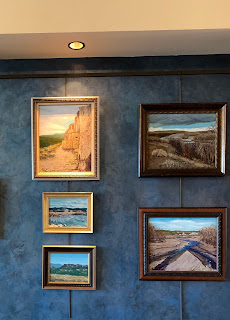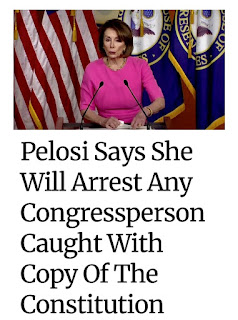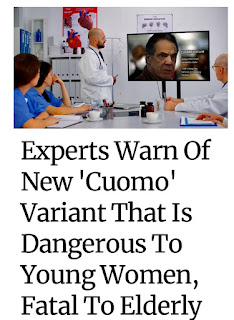 Mainline Florida: Link to Mainline Florida.
Mainline Florida: Link to Mainline Florida.
And the 6th piece

 Some of the featured commentators. Also, they ave a series Classic Albums which are our-long descriptions of albums and include the artists, commentators, engineers/producers, etc. There is studio footage, some concert cuts. Really neat stuff. I did not realize Alan Parsons produced PF’s Dark Side…and it was one of his first production jobs.
Some of the featured commentators. Also, they ave a series Classic Albums which are our-long descriptions of albums and include the artists, commentators, engineers/producers, etc. There is studio footage, some concert cuts. Really neat stuff. I did not realize Alan Parsons produced PF’s Dark Side…and it was one of his first production jobs. Also…
How bad does this atmosphere we're living in have to get before the people who say cancel culture is overblown admit that it is in fact an insanity that is swallowing up the world? He even makes fun of his own audience😅
This was sent to me, I don’t know the author.
The
Cab Ride
I arrived at the address and honked the horn. after waiting a few minutes
I walked to the door and knocked.. 'Just a minute', answered a frail, elderly voice.
After a long pause, the door opened. A small woman in her 90's stood before me.
She was wearing a print dress and a pillbox hat with a veil pinned
on it, like somebody out of a 1940's movie.
By her side was a small nylon suitcase. The apartment looked as if no one had
lived in it for years. All the furniture was covered with sheets.
There were no clocks on the walls, no knickknacks or utensils
on the counters. In the corner was a cardboard box filled with photos and
glassware.
'Would you carry my bag out to the car?' she said. I took the suitcase
She took my arm and we walked slowly toward the curb.
She kept thanking me for my kindness. 'It's nothing', I
told her.. 'I just try to treat my passengers the way I would want
'Oh, you're such a good boy, she said. When we got in the
through downtown?'
'It's not the shortest way,' I answered quickly..
'Oh, I don't mind,' she said.
'I'm in no hurry. I'm on my way to a hospice. '
I looked in the rear-view mirror.
Her eyes were glistening. 'I don't have any family left,' she continued
'What route would you like me to take?' I asked.
For the next two hours, we drove through the city. She showed me
the building where she had once worked as an elevator operator.
We drove through the neighborhood where she and her husband had lived
when they were newlyweds She had me pull up in
front of a furniture warehouse that had once
been a ballroom where she had gone dancing as a girl.
Sometimes she'd ask me to slow in front of a particular building
As the first hint of sun was creasing the horizon, she suddenly
We drove in silence to the address she had given me. It was
a low building, like a small convalescent home, with a driveway that
Two orderlies came out to the cab as soon as we pulled up. They were
solicitous and intent, watching her every move. They must have been
I opened the trunk and took the small suitcase to the door. The woman
'How much do I owe you?' She asked, reaching into her purse.
'Nothing,' I said
'You have to make a living,' she answered.
'There are other passengers,' I responded.
Almost without thinking, I bent and gave her a hug.
She held onto me tightly.
'You gave an old woman a little moment of joy,' she
said.'Thank you.'
I squeezed her hand, and then walked into the dim morning
light.. Behind me, a door shut. It was the sound of the closing
I didn't pick up any more passengers that shift. I drove
aimlessly lost in thought. For the rest of that
day, I could hardly talk. What if that woman had
gotten an angry driver, or one who was impatient
to end his shift?What if I had refused to take the run,
or had honked once, then driven away?
On a quick review, I don't think that I have done anything
We're conditioned to think that our lives revolve
around great moments.
But great moments often catch us unaware-beautifully
wrapped in what others may consider a small one.
PEOPLE MAY NOT REMEMBER EXACTLY
WHAT YOU DID, OR WHAT YOU SAID ~BUT~THEY WILL
ALWAYS REMEMBER HOW YOU MADE THEM
FEEL.
Thank you, my
friend...
Life may not be the party we hoped for, but while we
are here we might as well dance.
David Warren: The liturgical changes that resulted in the Novus Ordo were from their beginning a deviation from Vatican II. Pope Francis has made the deviant normal.
For someone who wasn’t there, it becomes increasingly difficult to reconstruct what actually happened in the Church “Post Vatican II.” I was aware of it, at first, as a pre-Christian, which is to say, not even as a sympathetic observer. Years would pass before I reached an age where I knew Catholics who cared; but then I met some fine ones.
By the time I was becoming a Christian (at the age of twenty-three), my “natural preference” was to be received as a Catholic, but my rational will joined the Anglican communion. This was because the Catholics were cutting a sad figure, especially by comparison in England, where I then lived.
 While I did not encounter any “clown masses,” I wouldn’t, because I wasn’t attending Church; and by carefully guiding my footsteps along the paths of very High Anglicanism, I could avoid similar scandals in my adopted religious environment. It was not until the 1980s that, with women priests and so forth, the Anglicans started to move away from me, and in effect, to evict their congregation; I saw them start for the doors.
While I did not encounter any “clown masses,” I wouldn’t, because I wasn’t attending Church; and by carefully guiding my footsteps along the paths of very High Anglicanism, I could avoid similar scandals in my adopted religious environment. It was not until the 1980s that, with women priests and so forth, the Anglicans started to move away from me, and in effect, to evict their congregation; I saw them start for the doors.One might have expected the Catholic pews to fill up, with the fleeing “C. of E.” But no. This is where the “Spirit of Vatican II” had its effect. There was no, or very little, enthusiasm in all the Popish places, that I could discern, except where Pope John Paul II's personal “charisma” sang a song.
Or perhaps I should generalize, for I was becoming aware of more and more remarkable individual Catholics – including even priests – who were an argument for religious faith and commitment.
For no matter how bad things get, there will always be – or there have always been – sincere Catholics. As one grows older, in my case, one grows familiar with them. The Church becomes personal, so that, one can no longer leave the Church easily. Instead, one is confronted with the prospect of multiple acts of betrayal.
Click here to read the rest of Mr. Warren’s column . . .
Randall Smith
WEDNESDAY, JULY 28, 2021
One of the valuable lessons classic economics can teach us is that there are always trade-offs. If you invest in one thing, you won’t be investing in another. You can see the bridge you spent money on, but you don’t see the hundreds of things notdone because you spent money on the bridge.
When I was chairman of my university’s curriculum committee, proposals abounded trumpeting wonderful new courses. My question was “What are you going to stop doing in order to do this?” “No, no,” people insisted, “we will continue doing all the wonderful things we do now.” “No, you won’t,” I would say. “Everyone is working a full schedule. So the only way you could possibly do all these new things is to stop doing some of the things you do now.”
This never went over well.
We have students in colleges across the country who can’t write a paragraph, do basic math, or read a relatively easy forty pages in a work of non-fiction. No one has ever asked them to follow an argument, let alone formulate one. And the little they know about the U.S. Constitution and American history is mostly wrong.
So what were they doing for twelve full years of schooling? It clearly wasn’t twelve years of solid training in reading, writing, and arithmetic. There was precious little history or literature. And these young people have little or no knowledge of the treasures of beauty to be found in nature, art, or architecture. I ask again, “What were these students doing for twelve years instead of reading, writing, and arithmetic, because they clearly weren’t doing as much of that as they needed?”
The problem is not much different – and in some ways worse – in Catholic schools. Twelve years of “Catholic” education, and if you ask students to finish this triad: “Abraham, Isaac, and ______?” they can’t do it. “What is Pentecost?” Blank stares. Ask them to list the Ten Commandments. Ninety percent will get it wrong. They aren’t any better at reading, writing, or math than their peers, and worse yet, at the basic tenets that will lead to salvation. Meanwhile, they’ve been taught to equate Catholic social justice with progressivism.
If you hired someone to take care of your yard, and they worked week after week, Monday through Friday, and at the end of the year, you found the grass unmowed, weeds choking everything, and all the flowers dead, you might wonder, “What were you guys doing?” If they then showed you the fire pit they dug in your yard, which you didn’t want, and then piles of trees they had cut that you wanted kept, you might understand better what they were doing all that time, but you still might wonder why they did it.

And this gets us closer to the nub of the problem. What is education for? When we thought education began in wonder and was about exploring the world, reading great books, figuring out the complex intricacies of math, and learning to think and express ourselves clearly, and ultimately understanding our relationship to God, we prepared young people pretty well for a worthwhile lifetime. Now that bureaucrats insist education is about preparing people for jobs and for being woke citizens, our students not only aren’tprepared for jobs or citizenship, they can’t do long division, or read Shakespeare or Scripture.
Our society emphasizes process over purpose. The unfortunate consequence is that we also end up emphasizing process over persons. Education is now more about fulfilling the dictates of bureaucrats than about truly fulfilling the future of students.
Bureaucrats who know little or nothing about teaching feel very comfortable telling actual teachers how they should do their jobs. With each passing “bold, new educational initiative” come more forms for teachers to fill out, more interminable meetings about “assessment,” less time for individual instruction, and less opportunity to find creative ways of teaching the basic material students need to know.
And, as every teacher knows, as soon as a new principal or a new superintendent of schools arrives, whether public school or Catholic school, it will be out with the old/new program and in with another bold new program, with new directives to read over, more “teaching training” sessions, different forms to fill out, and more interminable meetings to make sure everyone is completely “on board” with the new program. The results are rarely better than before, usually worse, but this is immaterial because administrators rarely stay around for long and are animated by ideology rather than experience.
So here’s a suggestion: Ask the person applying to be principal of your school or the superintendent of the school system how many students he or she has taught in an actual classroom. Not, “how many advanced degrees do you have?” or “how many elite administrative positions have you held?” But “how many actual students have you taught?” No one should be managing teachers who hasn’t had at least ten years of successful teaching experience.
Teachers can teach reading, writing, arithmetic, and basic science to students who want to learn. When we try to get schools to do a hundred other things, they will end up doing none of them well. Schools were not organized to be nor are they qualified to be therapy centers or social programming departments. They are also not churches. Unfortunately, many schools have become places where society dumps all the toxic waste from its cultural dysfunction. This is a burden schools cannot possibly bear and still do what they were established to do.
The Catholic liberal arts intellectual tradition provides resources unsurpassed in the world. And at a time when the public schools are destroying themselves, running after every educational and cultural fad, the Catholic Church has an unmatched opportunity to introduce more and more young people to the life-altering wonders of that tradition. It is an opportunity we are repeatedly squandering, and for which our children and grandchildren will not judge us well.
*Image: The Seven Liberal Arts by Giovanni dal Ponte, c. 1435 [Museo del Prado, Madrid]. Dal Ponte included more than seven figures in his painting to represent the liberal arts: grammar, rhetoric, and logic (the trivium) and geometry, arithmetic, music, and astronomy (the quadrivium). He also presents leading figures in each field: Ptolemy, Pythagoras, Cicero, and Aristotle and others. And fifteen angels.














































No comments:
Post a Comment